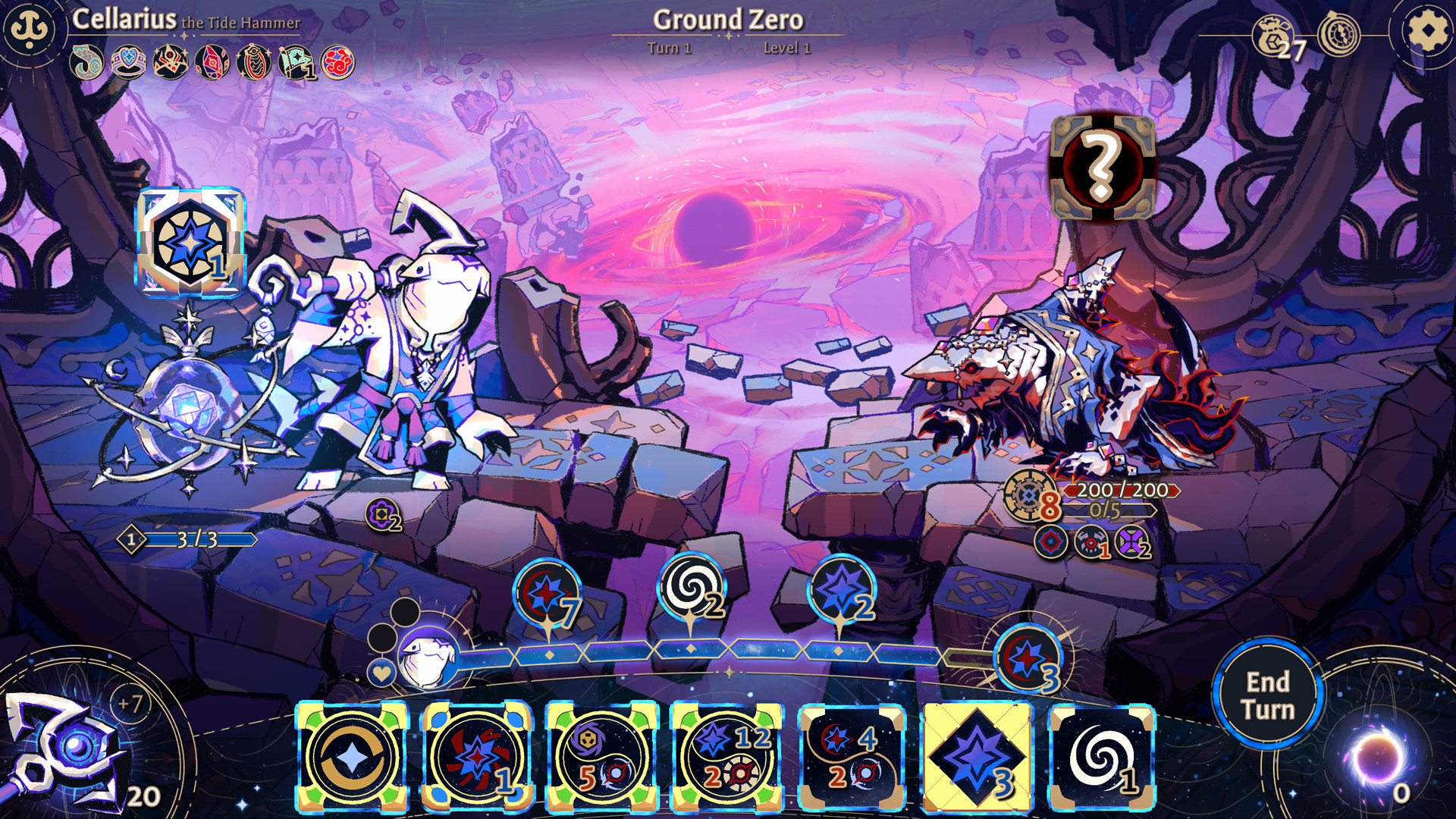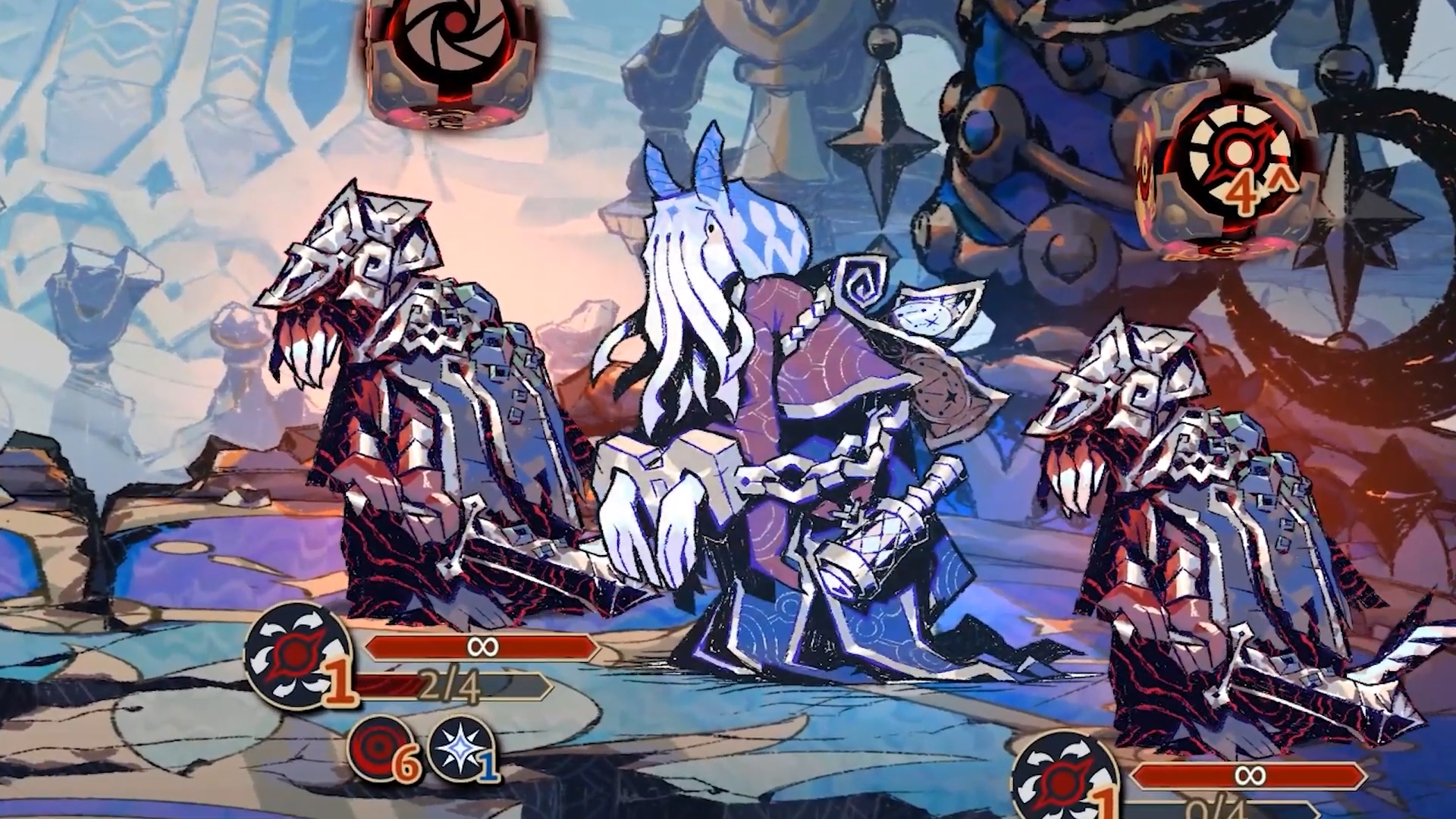I'm tired of roguelike deckbuilders, but this dicebuilder is a whole different story
Astrea: Six-Sided Oracles is the next game to watch in the Slay the Spire lineage.
Slay the Spire really is too good. Not only did it create a boom of me-too roguelike deckbuilders over the last five years, it also set such a high bar that few of the games releasing in its shadow can hope to measure up. I don't think I'm the only person who sees card games now and releases a little involuntary sigh. There are so many, and even the good ones are starting to feel a bit too similar.
But what if the cards in a deckbuilder weren't cards: what if they were dice? Big, chunky, glowing magical dice that look like they have gaseous nebulae inside them? That's the gimmick of Brazilian indie game Astrea: Six-Sided Oracles, a Slay the Spire-like from a tiny first-time indie team. The 2D art is gorgeous and looks like it comes from a far bigger studio.

The broad strokes of Astrea are familiar: it's run-based, the map includes battles and shops to buy and upgrade dice, and you fill out your "deck" (dice pouch?) by picking dice that fit a particular playstyle. Beyond that, it immediately does some things quite differently from Slay the Spire. Damage is built on top of "purification" and "corruption," which boils down to blue and red dice. Purify dice damage enemies and can fill up your own purify bar, which acts like a shield; if it depletes, you take damage yourself, and you can only survive a couple direct hits.
Corruption hurts you but heals enemies, and any corruption dice you roll have to be played that turn. Corruption dice aren't dead weight though, there are clever ways you can use them. With the character I played, I had an ability to purify one die every turn, and a number of abilities attached to my purify meter that triggered when it was depleted by certain increments. Astrea quickly demands a master's degree in order of operations. I started hitting my own purify meter with corruption dice to trigger abilities like rerolling two dice or dealing some bonus purify damage to an enemy, and then I'd end the turn by refilling the meter with purify dice that affected both me and the enemy.
After the first simple battles, the interplay between corruption, purification, and dice that offer multipliers and bonus effects ramps up sharply. There's a lot to keep track of in Astrea, which feels like the right move for an audience of deckbuilder players who have already dropped a thousand hours into Slay the Spire. I don't know if Astrea will ultimately be the more complicated game, but the way many dice can impact you or an enemy completely differently means the average turn really demands you sit and think for a second. There's no move quite as simple here as playing an attack or block card.
There's also no energy system, a welcome change from most games in this genre. You can play every die you roll every turn and use each ability you have triggered on your purify meter. It was too much to wrap my brain around in the 30 minutes I spent demoing Astrea, but that got me excited to play it further. And I was just playing with the most basic dice for the first available character in the game: Astrea is going to launch with six. Developer Little Leo Games told me that one advantage of using dice over cards is that it's far easier and faster to create new icons for them than unique art for a deck's worth of cards, allowing their sole artist to create the arsenals for all those characters.

I got that Slay the Spire tingle playing Astrea, in the same way I did when I first played Monster Train. What I'm unsure of is whether its purify/corruption mechanic will end up feeling tedious after too many runs. I like that Astrea is doing something really different with such a fundamental part of combat, but it adds a mental load to each turn that demands more focus than placing your beasties in Monster Train, at least. Having an ability you can trigger every single turn also seems like it threatens to become rote; on the other hand, I expect how you use that ability will vary dramatically based on your "deck" construction.
Keep up to date with the most important stories and the best deals, as picked by the PC Gamer team.
So far Astrea seems to be punching well above its weight for a tiny Brazilian team, and it's been picked up by publisher Akupara Games, which has a strong track record with the likes of Mutazione, The Darkside Detective, Rain World, and Behind the Frame. The first in what I expect will be a new wave of dicebuilders will be out next year, but there's currently a demo available on Astrea's Steam page.

Wes has been covering games and hardware for more than 10 years, first at tech sites like The Wirecutter and Tested before joining the PC Gamer team in 2014. Wes plays a little bit of everything, but he'll always jump at the chance to cover emulation and Japanese games.
When he's not obsessively optimizing and re-optimizing a tangle of conveyor belts in Satisfactory (it's really becoming a problem), he's probably playing a 20-year-old Final Fantasy or some opaque ASCII roguelike. With a focus on writing and editing features, he seeks out personal stories and in-depth histories from the corners of PC gaming and its niche communities. 50% pizza by volume (deep dish, to be specific).

